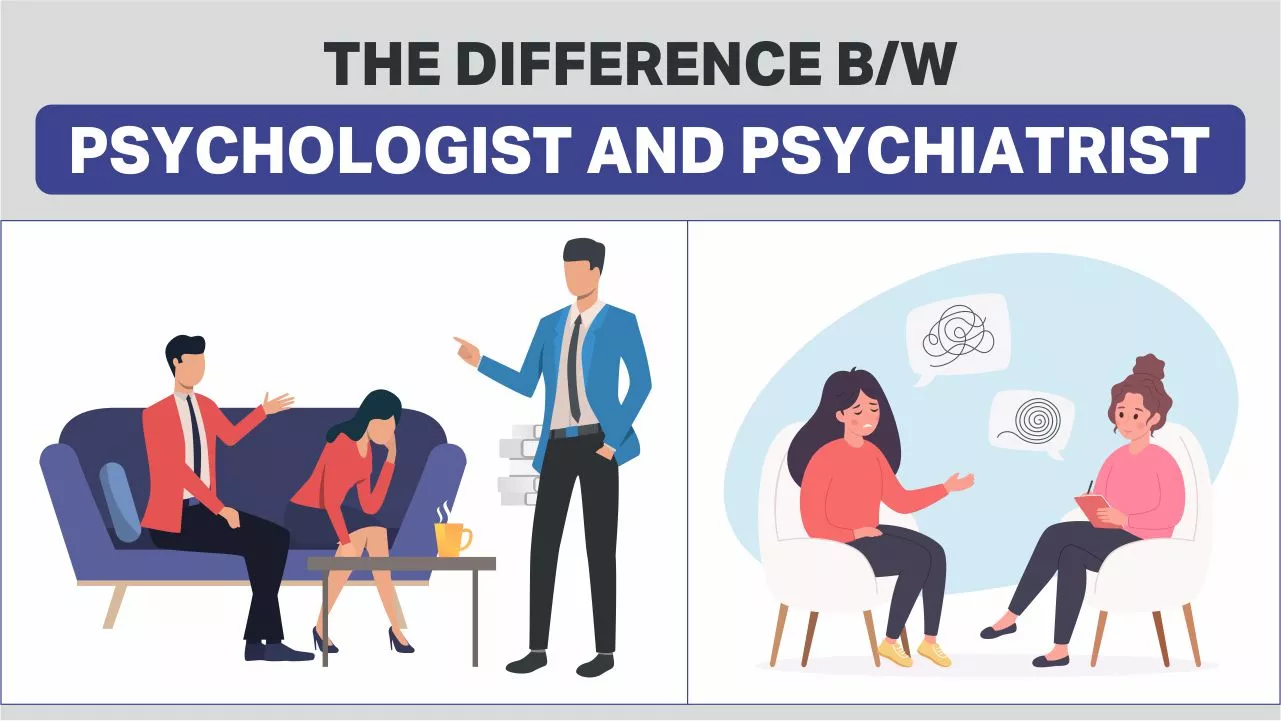Discovering the Best Psychologist in Delhi: A Guide to Your Mental Wellness Journey
The Function of Psych Treatment in Taking Care Of Anxiousness and Anxiety
Psychotherapy has actually arised as a cornerstone in the management of anxiety and depression, supplying tailored treatments that vary from Cognitive-Behavioral Treatment (CBT) to mindfulness-based techniques. These methods not only help people in identifying and reorganizing adverse thought patterns yet likewise foster present-moment recognition, decreasing the tendency to ruminate. As we check out the different measurements of psychiatric therapy, it ends up being evident that these approaches do more than simply minimize signs; they dramatically boost emotional law and interpersonal abilities - Best Psychologist in Delhi. What continues to be to be examined is just how these restorative techniques can be properly customized to satisfy individual needs, therefore maximizing their effect.
Understanding Anxiety and Depression
Comprehending anxiousness and anxiety needs a thorough look at these prevalent mental wellness problems, which typically coexist and dramatically effect an individual's everyday life. Conversely, clinical depression manifests as a prevalent feeling of hopelessness, emptiness, or despair, frequently come with by a loss of interest in formerly appreciated activities, adjustments in appetite, and sleep disruptions.
The coexistence of stress and anxiety and clinical depression can make complex and aggravate signs medical diagnosis and therapy. People struggling with both problems might experience more serious signs and symptoms, better impairment in work-related and social performance, and a much longer period of illness. This comorbidity necessitates a nuanced understanding and method to therapy.
Neurobiological variables such as neurotransmitter imbalances, genetic predispositions, and environmental stressors contribute to the development and maintenance of these disorders. Cognitive patterns like adverse reasoning and maladaptive habits can continue these conditions. Understanding the intricate interplay of these elements is essential for efficient treatment. Comprehensive analysis by mental health professionals is important to discern the visibility and level of these problems, paving the way for customized healing methods.
Kinds Of Psychotherapy
Psychiatric therapy, likewise known as talk therapy, includes a selection of treatment modalities created to minimize symptoms of stress and anxiety and depression by resolving the underlying psychological and mental concerns. Different kinds of psychiatric therapy are tailored to fulfill the distinct requirements of people, offering a variety of approaches to mental wellness care.
One commonly made use of form is psychodynamic therapy, which concentrates on understanding and resolving unconscious problems stemming from early life experiences. By discovering these deep-rooted issues, individuals obtain insight into their present actions and mood.
Interpersonal Therapy (IPT) is one more reliable method that concentrates on boosting social relationships and function to minimize depressive signs. It generally attends to problems such as pain, role transitions, and interpersonal conflicts.
Humanistic therapies, such as Client-Centered Therapy, emphasize personal growth and self-actualization. Best Psychologist in Delhi. These approaches create a supportive environment where individuals can explore their feelings and develop a stronger sense of self
Lastly, Dialectical Behavior Treatment (DBT) incorporates cognitive-behavioral strategies with mindfulness techniques. Initially established for borderline character condition, DBT has been adapted to treat anxiety and clinical depression by training abilities in distress tolerance, emotional regulation, and interpersonal performance.
These varied psychotherapeutic techniques use multiple paths to mental health and well-being, dealing with private preferences and look at more info therapeutic demands.
Cognitive-Behavioral Therapy (CBT)
Among the numerous psychotherapeutic techniques, Cognitive-Behavioral Therapy (CBT) stands out for its organized, goal-oriented strategy in treating anxiety and clinical depression. Established by Aaron T. Beck in the 1960s, CBT is predicated on the idea that maladaptive thinking patterns contribute considerably to psychological distress and behavioral concerns. By determining and reorganizing these adverse thought patterns, CBT intends to minimize symptoms and foster healthier cognitive procedures.
CBT is commonly short-term, spanning 12 to 20 sessions, and includes a collaborative initiative in between specialist and patient. The treatment encompasses a selection of methods, including cognitive restructuring, exposure therapy, and behavior activation. Cognitive restructuring concentrates on challenging and customizing altered cognitions, while direct exposure treatment progressively adapts patients to anxiety-provoking stimuli, lowering avoidance habits. Behavior activation looks for to increase interaction in fulfilling activities to combat depressive states.
Empirical evidence underscores the efficacy of CBT, with various researches showing its performance in reducing symptoms of anxiety and depression. This therapeutic approach has actually been adapted for various populaces and setups, confirming functional and versatile. Its structured nature, empirical assistance, and concentrate on ability purchase make CBT a over at this website foundation in the psychotherapeutic treatment of anxiety and depression.
Mindfulness-Based Techniques
Mindfulness-Based Techniques have actually gathered significant focus in recent times as reliable treatments for stress and anxiety and depression. Rooted in old meditation techniques, these methods aim to grow an increased awareness of the that site existing moment, which can aid individuals disengage from the ruminative idea patterns usually linked with anxiety and depressive problems.

In A Similar Way, Mindfulness-Based Cognitive Treatment (MBCT) incorporates principles from Cognitive-Behavioral Therapy (CBT) with mindfulness strategies. MBCT is particularly reliable in protecting against regression in people with recurring clinical depression. By acknowledging early indication of depressive episodes, people trained in MBCT can use mindfulness techniques to alleviate the onset of full-on episodes.
Advantages of Psychotherapy
Numerous researches have demonstrated the extensive benefits of psychiatric therapy for people coming to grips with anxiety and clinical depression. One of the key benefits is the improvement of psychological guideline. Psychotherapy outfits clients with dealing methods to manage traumatic emotions, therefore decreasing signs and symptoms of stress and anxiety and clinical depression. Cognitive-behavioral therapy (CBT), for example, helps people identify and challenge adverse idea patterns, promoting an extra balanced and favorable overview.
Additionally, psychiatric therapy offers a structured atmosphere for self-exploration and understanding. By reviewing their experiences and feelings with a qualified therapist, individuals can discover underlying concerns adding to their psychological health struggles. This self-awareness is a vital action towards lasting recuperation and strength.
An additional significant benefit is the improvement of social skills. Stress and anxiety and anxiety usually stress partnerships, bring about seclusion. Via healing treatments, individuals discover efficient communication and conflict-resolution skills, which can improve their interactions and foster encouraging partnerships.
Furthermore, psychiatric therapy uses a tailored strategy to therapy. Ultimately, the advantages of psychotherapy expand beyond signs and symptom relief, adding to overall health and quality of life.

Conclusion
Psychotherapy considerably adds to the management of stress and anxiety and anxiety by supplying effective coping strategies and a safe setting for self-exploration. Strategies such as Cognitive-Behavioral Treatment (CBT) and mindfulness-based approaches are important in determining and restructuring unfavorable thought patterns, while promoting present-moment understanding. These tailored interventions not only reduce signs however likewise enhance emotional regulation and interpersonal abilities, therefore enhancing overall well-being and high quality of life for people encountering these psychological health and wellness difficulties.
Psychotherapy has emerged as a cornerstone in the monitoring of anxiousness and depression, offering tailored treatments that vary from Cognitive-Behavioral Therapy (CBT) to mindfulness-based strategies.Comprehending anxiousness and depression calls for an extensive appearance at these common psychological health problems, which usually coexist and considerably impact a person's everyday life.Among the various psychotherapeutic modalities, Cognitive-Behavioral Therapy (CBT) stands out for its organized, goal-oriented technique in treating anxiousness and depression.Various researches have demonstrated the profound benefits of psychotherapy for people grappling with stress and anxiety and anxiety. Psychotherapy gears up individuals with coping approaches to take care of traumatic feelings, thereby minimizing signs of anxiousness and depression.